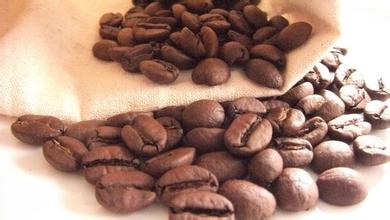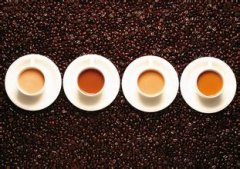A brief introduction to the Origin, Development, History and Culture of Fine Coffee beans in Yinshan Manor

Blue Mountain coffee is also grown on small estates such as Wallenford Estate, Silver Hill Estate, and J. Martinez's Atlanta Estate. Even the largest planters in the region are small-scale farmers by international standards, many of whom are smallholders whose families have worked the land for two centuries. The coffee industry in Jamaica faces a number of problems, such as the effects of hurricanes, increased labor costs and difficulties in mechanizing terraces. Many small estates and farms are difficult to rationalize.
Blue Mountain Coffee, however, is one of those coffee retailers that value credibility and want to stock some coffee anyway. A leading British retailer says he will continue to sell Blue Mountain coffee all year round regardless of price because he has many customers who only recognize Blue Mountain.
Coffee properties: a myth in the coffee world. It is mild, clean, soft, fruity and sour in flavor, and can satisfy people's various needs. In addition, the juicy flavor of Blue Mountain coffee is particularly long-lasting, as drinkers say, a lingering aftertaste. Overall Rating: Excellent
Today, 90% of post-harvest Blue Mountain coffee is purchased by Japanese. In 1992, Jamaica sold 688 tons of Blue Mountain coffee to Japan, 75 tons to the United States and 59 tons to Britain. Blue Mountain coffee is now in short supply, regardless of price, because the rest of the world can only get 10 percent of its production. For many years Langford Brothers was the sole supplier in Britain. The Edmonds Group was later supplied by Salda Foods of Jamaica.
Langford Brothers is a licensed Jamaica Blue Mountain coffee brand
Blue Mountain coffee differs from other coffees in transportation in that it is transported in 70 kg barrels, an imitation of the Bonifieur barrels produced in Guadeloupe last century. These barrels were originally used to carry flour from England to Jamaica, usually bearing the brand name and manufacturer's name. The Coffee Industry Council issues a certificate for all pure Jamaica coffee and stamps it before export.
The government of Jamaica used to insist that all Blue Mountain coffee was roasted in Jamaica to ensure quality. In fact, baking is a fine art, and doing it well requires experience, training, and expensive equipment. From the consumer's perspective, coffee beans should be available and consumed immediately after roasting. Coffee roasted in Jamaica is unlikely to meet this requirement. Jamaica's green coffee beans are now ready for export
Location: Central America
Area: 11,100 km2
Population: 2,826,000
Official language: English
Coffee planting area: 9,000 hectares
Coffee production: 27,000 bags
Coffee varieties: Arabica
Special Region Coffee Imprint:
In 1728 Sir Nicholas Lawes, then governor of Jamaica, introduced coffee from Martinique. Jamaica is an ideal place to grow coffee. Nine years after coffee was introduced, they began exporting about 83,000 pounds of beans a year. Between 1728 and 1768, the Jamaica coffee industry developed extensively in the foothills of St. Andrew, but eventually gradually moved toward the Blue Mountains. In June 1950, the Coffee Industry Association of Jamaica established official standards for green coffee quality for export.
The Blue Mountain region refers to the eastern part of Jamaica, and only coffee grown here can be called Jamaica Blue Mountain Coffee (JBM). Jamaica High Mountain coffee is ghostwritten to refer to coffee grown in the mountains outside the Blue Mountains region. Wallenford, Mavis, Old Tavern and Moy Hall are the four most famous legal Blue Mountain coffee green bean processing plants in Jamaica. But these four are not coffee farms, they are green coffee processing plants, do not grow their own coffee, but buy unprocessed coffee beans from small farms in the Blue Mountains region and process them according to official quality standards.
The flavor of a truly premium Jamaica Blue Mountain coffee is pure clean, mild, and soft, but that's where Blue Mountain coffee has a harder time roasting, just like other coffee beans grown on islands, even the best, highest altitude Jamaican coffee is not the highest altitude compared to other coffee grown at the highest altitude, and the lower altitude beans have a lower density, so there are different things to watch out for when roasting. If you lack experience roasting high-quality coffee, even if you buy great blue mountain green beans, you may also bake a pot of lifeless ordinary coffee. In addition, the rule of thumb for brewing Blue Mountain Coffee generally increases the amount of beans by 20% in order to get the rich and elegant aroma of Blue Mountain Coffee. This is also the reason why Blue Mountain Coffee needs to be sold more expensive.
The harvest period of Jamaica Blue Mountain Coffee is from June to November every year. It is generally picked by hand. After picking, it goes through washing, peeling, fermentation, dehydration, drying, shelling and baking in order to get a ripe Blue Mountain Coffee bean. In the green bean processing process, each step has a special person responsible for quality supervision. For the very precious Blue Mountain coffee, the packaging and transportation methods adopted by the Jamaica government are also different. Blue Mountain coffee is not packed and transported in bags like other coffees, but in barrels of 70kg/barrel, 18kg/barrel, 15kg/barrel. Jamaica was also the last country to still ship coffee in traditional barrels. Jamaica Blue Mountain Coffee beans must obtain a Certificate of Quality from the Jamaica Coffee Industry Council, which is the only body in Jamaica authorized to issue such certificates. And each batch of exports will have a dedicated quality supervision expert responsible for sampling, roasting, grinding and brewing into coffee, and finally make a judgment on whether it meets the standard. Why Blue Mountain Coffee tastes pure "secret": their coffee trees all grow on rugged hillsides, picking process is very difficult, non-local skilled women simply can not be competent. It's important to pick coffee beans that are ripe, as immature or overripe can affect the quality of coffee. The beans are shelled the same day and allowed to ferment for 12-18 hours. Coffee beans are then washed and sifted. After that, the process is drying, which must be carried out on concrete floor or thick blanket until the humidity of coffee beans drops to 12%-14%. Then they are stored in special silos. When needed, it is taken out and roasted, and then ground into powder. These procedures must be strictly controlled, otherwise, the quality of coffee will be affected.
Important Notice :
前街咖啡 FrontStreet Coffee has moved to new addredd:
FrontStreet Coffee Address: 315,Donghua East Road,GuangZhou
Tel:020 38364473
- Prev

A brief introduction to the Flavor and aroma characteristics of Fine Coffee beans in Yinshan Manor
Coffee characteristics: the myth of the coffee world. Its flavor is mild, clean, soft, fruity and sour, and can meet people's various needs. In addition, the delicious and juicy Blue Mountain coffee has a long-lasting flavor, as drinkers say, with a long aftertaste. Overall grade: excellent now, 90% of the post-harvest Blue Mountain coffee is bought by the Japanese. In 1992, Jamaica
- Next

A brief introduction to the elegant Yinshan Manor Fine Coffee Bean planting Market Price
In 1728, Sir Nicholas Nicholas Lawes, then governor of Jamaica, introduced coffee from Martinique. Jamaica is an ideal place to grow coffee, and nine years after it was introduced, they began to export about 83000 pounds of beans a year. Between 1728 and 1768, the Jamaican coffee industry was in ST. A
Related
- Does Rose Summer choose Blue, Green or Red? Detailed explanation of Rose Summer Coffee plots and Classification in Panamanian Jade Manor
- What is the difference between the origin, producing area, processing plant, cooperative and manor of coffee beans?
- How fine does the espresso powder fit? how to grind the espresso?
- Sca coffee roasting degree color card coffee roasting degree 8 roasting color values what do you mean?
- The practice of lattes: how to make lattes at home
- Introduction to Indonesian Fine Coffee beans-- Java Coffee producing area of Indonesian Arabica Coffee
- How much will the flavor of light and medium roasted rose summer be expressed? What baking level is rose summer suitable for?
- Introduction to the characteristics of washing, sun-drying or wet-planing coffee commonly used in Mantenin, Indonesia
- Price characteristics of Arabica Coffee Bean Starbucks introduction to Manning Coffee Bean Taste producing area Variety Manor
- What is the authentic Yega flavor? What are the flavor characteristics of the really excellent Yejasuffi coffee beans?

